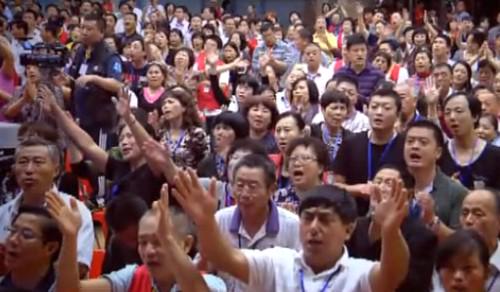Recently, a pastor from East China talked about the issue regarding the social insurance program for the pastoral staff which has been affected by urbanization.
In the past couple of years, China has improved the country’s five major social insurance systems and the housing provident fund system. Under the five major social insurance system are pensions, unemployment insurance, medical insurance, work-related insurance and maternity insurance.
According to Rev. Luke Lee from Shanghai, the five major social insurance programs and the housing provident fund was a crucial problem in the time of Premier Li Ke Qiang, announcing the issue after the Fourth Session of the 12th National People’s Congress. Li stressed that “there’s still some room for us to cut the contributions to these insurance schemes and funds. Conditions are also different per locality which must also be considered.”
Rev. Lee remarks that most pastors in China do not have insurances or funds that would assist them in taking care of their ministries, especially for those who are situated in rural areas. Most pastors and full-time staff often encounter difficulties in sustaining their needs and their families. Children of these staff workers are unable to complete their education because they are not permitted to enroll without insurance. These staff members are also unable to support housing needs, medical care and other social services.
Rev. Lee indicated that while it is plausible to purchase a social insurance or housing provident fund, these pastor groups are still unable to do so for several reasons.
First, purchasing a social insurance or housing provident fund per month is very expensive as the cheapest insurance available per person is worth 1200 yuan. Pastor groups only make 1000 yuan per month or even lower, disabling them from paying the premium.
Second, China does not have a pension system that would cater to the needs of retired pastors; but this can be attributed to the fact senior pastors in China are not a lot.
Third, individuals who have social insurances often pay their premiums through companies or employers. Since pastors and their staff do not belong to any company or employer, they have lesser options on how they can pay their premiums.
Rev. Lee even added that pastors would often send their children away and back to their hometowns to get a semblance of normalcy and get a chance to study. In some cases, these children are sent to their grandparents.
He also added that this problem regarding social insurance and housing provident funds challenges pastors ages 30 years and above. Separating themselves from their families would also trigger further problems and affect the growth of these children.
The unstable situation of these families, according to Rev. Lee, has several implications to children. In his statement, he said “This situation affects children in three ways: firstly, they will think that its unfair to be children of pastors. Second, these children would be changed considerably once they are returned to their hometowns. Finally, these children’s education would also vary considerably and the different educational levels may influence their perceptions considerably.”
With this mindset, it is possible that it would affect the urban ministry of pastors.
Rev. Lee then points out that it is crucial that this problem is resolved and in order to solve this problem, the church must gain support from Christians, specifically working Christians and entrepreneurs.
He hopes to establish a special fund to assist ailing pastors and call for support from working Christians to donate for the effort. While final plans are still not sorted out, Rev. Lee is exploring all the patterns possible on funding can be divided equally.











